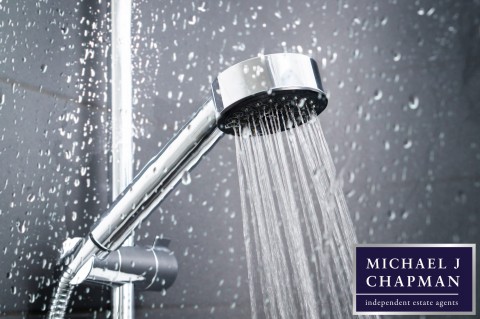
Landlords in Wilmslow or Alderley Edge must carry out risk assessments by law before renting out their property. However, while some of those assessments, such as the gas safety check are well known, the legionella risk assessment isn’t particularly well-publicised.
Another problem is that the legislation regarding Legionella testing is confusingly worded, and that has led to several landlords being caught out. With that in mind, we’ll shed some light on water safety so you can gain a better understanding of this subject.
Legionella – What Is It?
You may not have heard of Legionella, but you’re probably aware of Legionnaire’s Disease. This is a severe type of pneumonia caused by Legionella bacteria. In the UK, Legionnaire’s disease predominantly comes from water, but Legionella bacteria can be found in the soil too, and the disease may be contracted if you inhale it.
Legionella bacteria requires a specific type of environment to thrive, and modern water systems are the ideal location for Legionella to grow, particularly if they remain unattended for any length of time, since they meet all the temperature requirements for the bacteria and provide nutrition for it in the shape of biofilm, scale, rust, and sludge.
It’s these cold and hot water systems you need to pay attention to.
What Symptoms Are Associated With Legionnaire’s Disease?
Legionnaire’s Disease will typically develop between 2 and 10 days after being exposed to the Legionella Bacteria. Usually, the following initial symptoms will be experienced:
- Headaches
- Muscle aches
- A fever of 104 degrees Fahrenheit
After a couple of days, more symptoms will appear such as:
- Coughing, bringing up mucus or blood
- Chest pains
- Difficulty breathing
- Gastrointestinal symptoms like nausea, diarrhoea and vomiting
- Confusion
Who Is At Risk Of Legionnaire’s Disease?
The people most at risk of this condition are smokers, older adults, and people who have a weak immune system.
What Are My Legal Requirements As A Landlord Regarding Legionella?
As a property landlord in Wilmslow & Alderley Edge, it’s part of your legal responsibility to ensure those who are renting a property from you have a place to live that is free of health hazards and that is safe. That means you need to assess the potential risks of being exposed to Legionella. You can, however, carry out your risk assessment yourself – there are no legal requirements to obtain a professional report.
I Own An Older Property – Is It More At Risk?
Many older properties have old water systems and they may potentially provide Legionella bacteria with a more attractive breeding ground in which to flourish. But that doesn’t mean that Legionella colonisation can’t occur in a new water system. An old water system that has been maintained and used regularly during its lifespan should pose no greater risk than newer systems. In fact, newer water systems that have been neglected pose a larger threat as the water in them hasn’t been kept moving or been flushed through.
Water storage also has a vital role to play when it comes to Legionella bacteria forming. If the water is directly drawn from a mains supply, for example, by a combi boiler, the Legionella risk is considerably reduced. With that in mind, switching an old water heater for a new one will lower the risk potential of your property greatly.
How Do I Do A Risk Assessment For Legionella?
To perform a risk assessment of Legionella you need to:
- Inspect the property’s water systems closely
- Determine potential hazards and assess their risk level
- Pinpoint who could be at risk
- Make a written report of your findings
If hazards are identified, control measures must then be implemented to curb the risks.
Should you engage a professional to perform your risk assessment, they will carry out a water test on samples too, but there’s no legal requirement for this.
How Often Must I Assess The Risk Of Legionella?
The legal wording regarding Legionella assessments is confusing since it only uses the term “periodically”. While there are no legal requirements for annual or biennial assessments, it’s wise to be proactive. Carrying out an assessment every two years is sensible, as is performing an assessment between tenancies and after any work on the system.
The Risk Factors For Legionella
Certain factors increase the risk of legionella contamination. These include:
- A water temperature between 20 and 45 degrees Celsius
- When biofilm, scale, rust, or sludge are present
- If the water has “sat” for a prolonged period
- If the tank hasn’t been cleaned or flushed regularly
- If stagnant water is recirculating through the water system
Minimising The Risk Of Legionella
Steps landlords can put in place to minimise the risk of Legionella contamination include:
- Carrying out an annual boiler service and annual pipework checks
- Preventing any debris from accumulating in the system
- Carrying out frequent checks on the water tank seals
- Removing any unused pipework
- Regularly flushing the system especially after void periods
- Keep the water temperature at 60 degrees Celsius
- Getting rid of water tanks and switching to an instant water heater
If you are a landlord and need more advice about your legal requirements regarding risk assessments, get in touch with the team at Michael J Chapman Estate Agents. We can give you the information you need, so call us today on 01625 584379.

